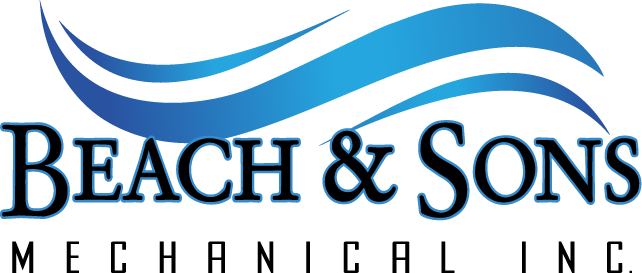Completing the search for your first home is exciting. You’re probably trying to keep track of a dozen things or more to ensure you’re making the right choice. We believe that gaining insight into your potential new HVAC system is crucial. The property’s HVAC system represents a significant investment and source of potential long-term costs, illustrating why a detailed inspection is important for first-time homebuyers.
In the following guide, we’ll outline seven tips for learning everything you can about a home’s heating and cooling system. And if you want a deeper opinion from the experts, don’t hesitate to contact Beach & Sons Mechanical, Inc.. Our experienced team can share details about your options with industry insights you won’t find elsewhere.
1. What HVAC System Are You Working With?
Start by determining what specific HVAC system the home has. Furnaces tend to last longer than air conditioners, and relatively new types of HVAC equipment like heat pumps can offer average life spans that are impressively long. Knowing the make and specific model gives you a much better sense of how much maintenance it will require.
2. What Is the Current System’s Age?
Another good idea is to find out how old the HVAC system is when you’re considering a potential new home. For the most part, HVAC systems should survive for around 10-12 years. Knowing when it was installed helps you anticipate future maintenance needs or when it might eventually stop working. Older systems are at a higher risk of problems, so planning ahead of time for a replacement unit could be necessary sooner than you thought.
3. Is the Warranty Active?
Be sure to check the HVAC system is covered by a warranty. If it is, this can lower maintenance costs. HVAC warranties should take care of parts and labor, but the details in each policy will vary. Review any terms that aren’t familiar to make sure you fully understand your coverage and potential out-of-pocket costs.
4. Does the System Have a Documented Maintenance History?
Don’t forget to check the maintenance history of the HVAC system, if the records are available. This kind of information can reveal if there have been regular problems or how often a tune-up was scheduled. Ask about records for key tasks such as changing the air filter, which is a positive sign indicating regularly scheduled tune-ups.
5. Do You Know Its Energy Efficiency Ratings?
Selecting a system with great energy efficiency means smaller utility bills and less of an impact on the environment. Locate the seasonal energy efficiency ratio (SEER) ratings for air conditioning and the annual fuel utilization efficiency (AFUE) for furnaces. The higher the SEER rating, the more efficient the cooling over the whole season, while higher AFUE ratings illustrate that the fuel is more effectively burned for useable heat.
6. Have You Noticed Signs of Problems During Your Inspection?
Even if you don’t have the know-how of an HVAC technician, you should still check out the HVAC system on your own. Look for any concerning items that weren’t mentioned by the seller or real estate agent. This includes strange noises, stubborn patches of the house that are too hot or cold and attempts at concealing any visible damage.
7. Have You Sought Out Expert Advice?
If you’re not quite sure about the condition of the HVAC system, it’s wise to get an assessment and recommendation from experienced HVAC technicians. They will be much more likely to catch things you might miss, such as leaks in the refrigerant, bad electrical connections or damaged ductwork.
A Consultation with Beach & Sons Mechanical, Inc. Simplifies Your Home-Buying Journey
Selecting your first home should be thrilling, and Beach & Sons Mechanical, Inc. will do everything possible to ensure that doesn’t change. Get in touch with us at 775-782-0055. We can discuss how our HVAC services give you peace of mind, giving you what you need to dive into home-ownership with confidence.
